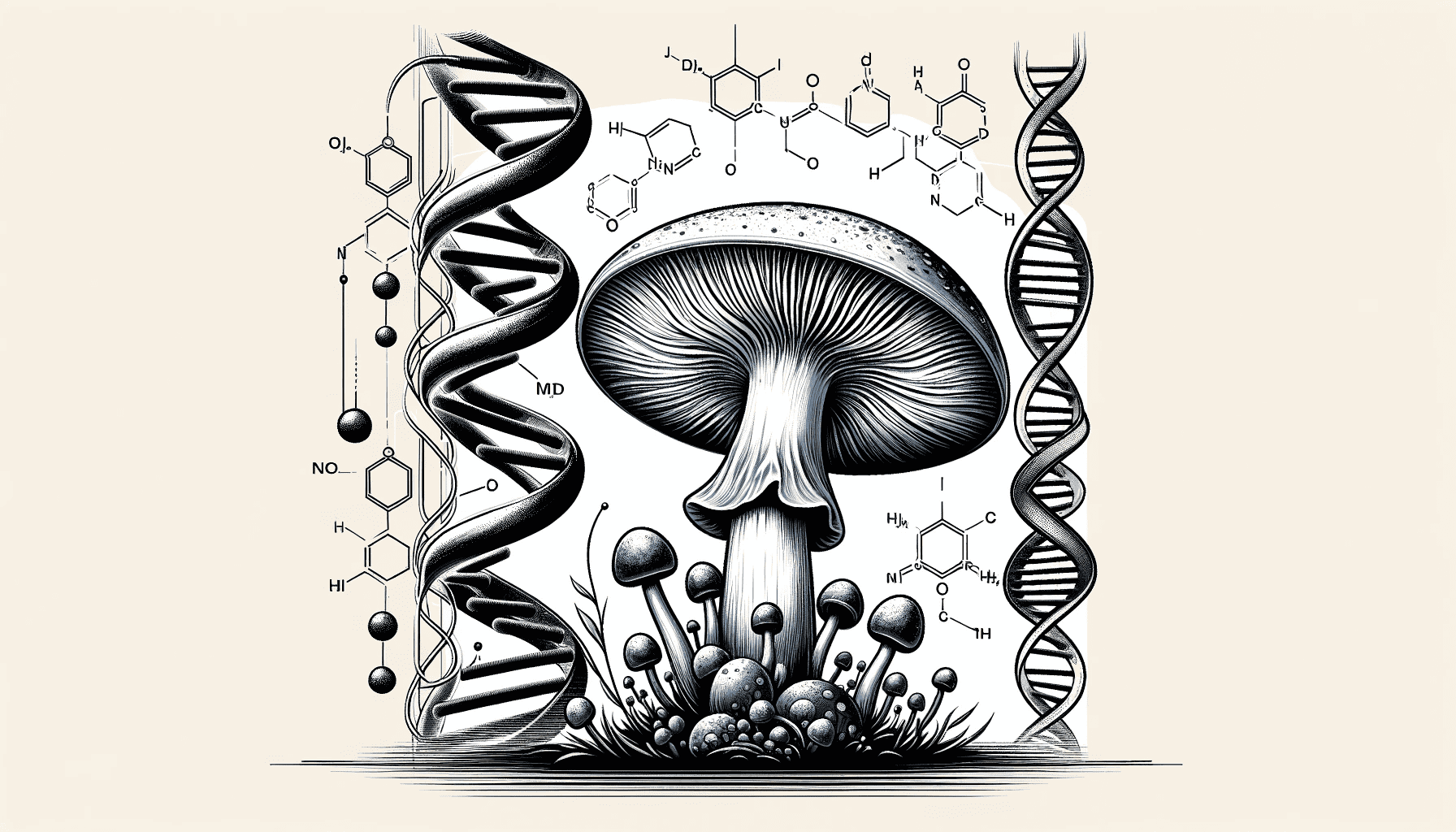
- 🧬 Scientists have decoded the genetics of over 100 magic mushroom strains, revealing differences in genetic diversity between wild and cultivated varieties.
- 🔬 This research, conducted by the University of Queensland, shows potential for creating designer mushrooms tailored for mental health therapy.
- 🍄 Magic mushrooms, traditionally used recreationally, are gaining scientific recognition for treating mental health issues like depression and PTSD.
Scientists have decoded the genetic blueprint of over 100 “magic mushroom” strains. Their work offers a glimpse into the domestication and cultivation of these fungi, shedding light on their evolving genetic landscape. This new data can pave the way for novel “designer shrooms” that have a certain psilocybin and tryptamine composition that is best suited for mental health therapy.
Unlocking magic mushroom genetics
This research was fueled by an underground community that is passionate about magic mushrooms. Without financial backing, enthusiasts worldwide collected and sent in samples for study. Researchers from the University of Queensland in Australia then sequenced the genomes of these samples, which included 38 Australian isolates with 86 commercial strains.
By comparing the genetic makeup of these different strains, researchers sought to understand the mushrooms’ journey to Australia and the impact of domestication. Commercially grown Psilocybe cubensis mushrooms show a worrying lack of genetic diversity, a byproduct of human cultivation. In contrast, the wild population in Australia boasts a rich genetic diversity, including unique genes responsible for producing psilocybin, the mushroom’s psychoactive compound.
“What was surprising was the extreme homozygosity of some cultivars of magic mushroom,” says lead author Alistair McTaggart of The University of Queensland. “Some of these cultivars have been nearly stripped of any diversity except at their genes controlling sexual reproduction.”
“Whether this happened intentionally, by targeted inbreeding to fix traits over the last half century, or unintentionally through a lack of diversity to cross against is hard to know,” he says.
“The trailblazers who domesticated magic mushrooms have set the stage for how we can advance cultivation and innovate with shrooms as we improve our understanding of psilocybin and its benefits.”
This diversity of the wild strains hints at potential variations in psilocybin synthesis, opening doors to new research and cultivation methods. McTaggart’s team’s insights are already shaping the future of mushroom cultivation. Their new start-up, Funky Fungus, is harnessing these genetic findings to develop unique mushroom strains with certain desirable properties.
Although they are typically famous for their recreational use among psychedelic enthusiasts, magic mushrooms have more recently emerged as a valid, scientifically-backed treatment in a mental health setting.
Used in controlled, clinical settings, psilocybin has shown promise in treating a range of mental health issues, including depression, anxiety, addiction, and PTSD. Unlike traditional treatments, psilocybin offers a unique approach by potentially altering perception and promoting a deep psychological introspection that can lead to significant and lasting improvements in mental well-being. The effect of psilocybin is often described as opening the mind or expanding consciousness, which can help patients break free from rigid patterns of negative thought and behavior.
“Magic mushrooms are the cheapest source of psilocybin and may fill a niche in natural drug development,” McTaggart said. “There is yet more to understand about how magic mushrooms produce other compounds that may impact a psilocybin experience, and this will be an exciting area of research to watch unfold.”
The findings appeared in the journal Current Biology.






